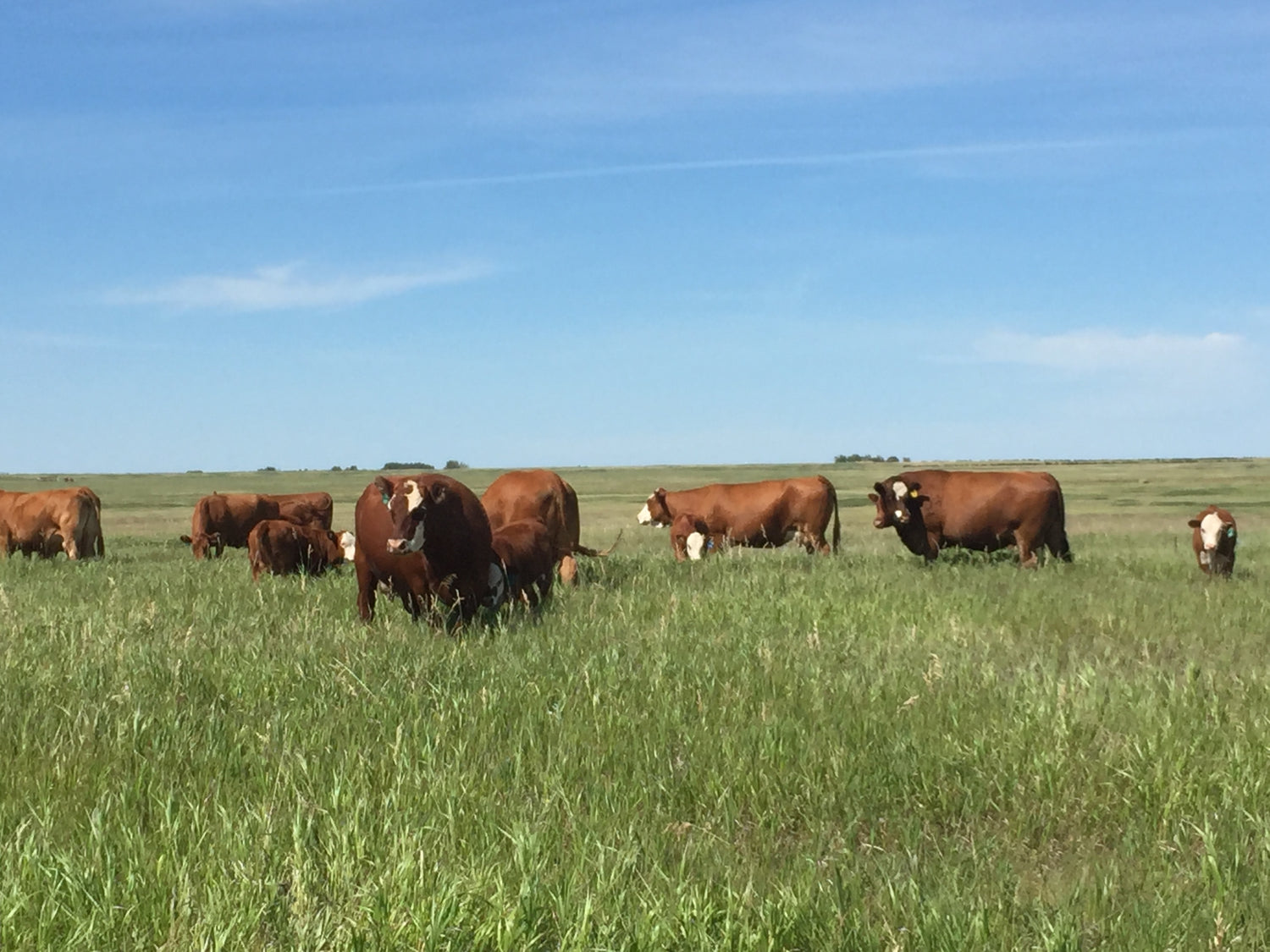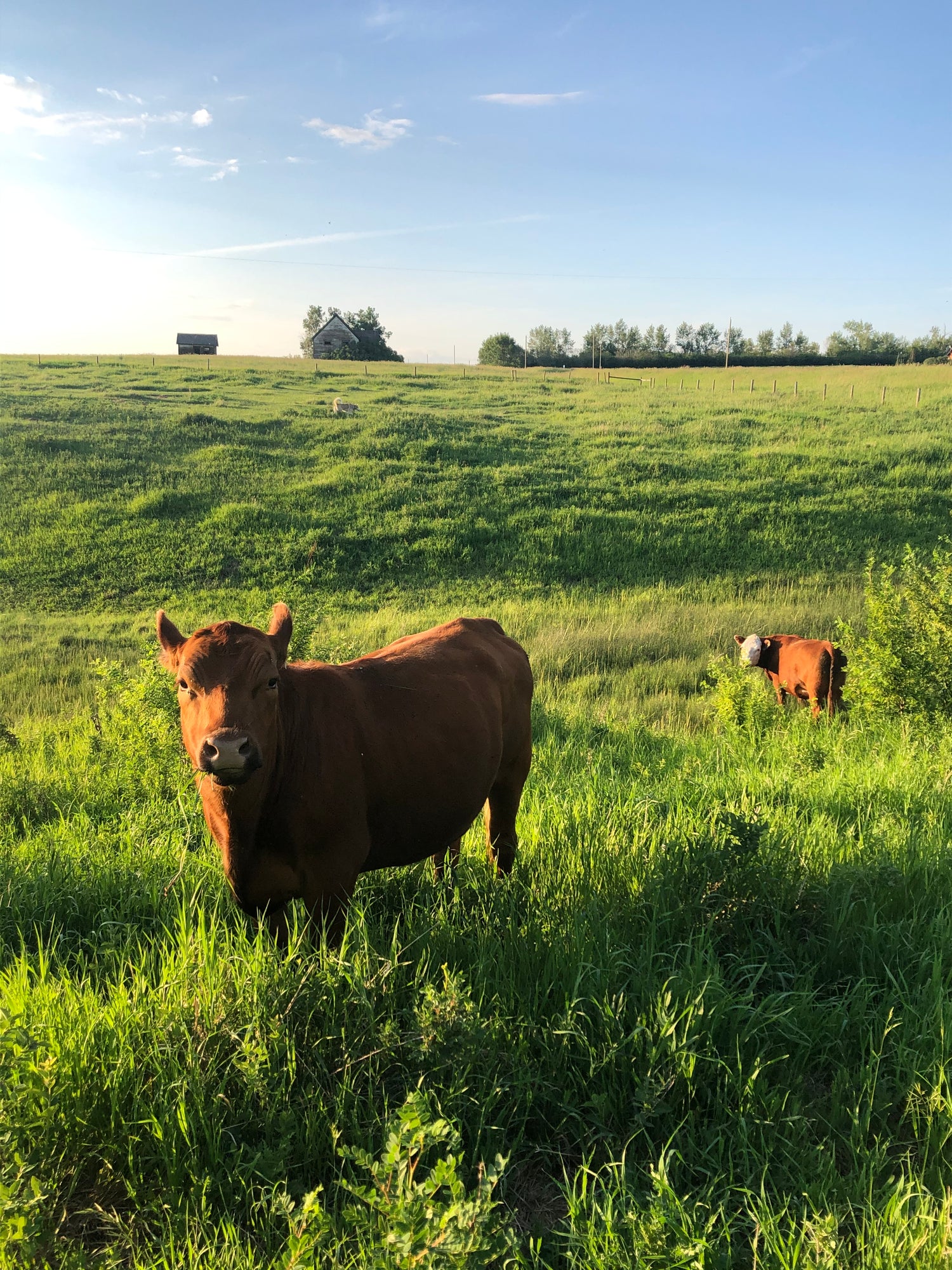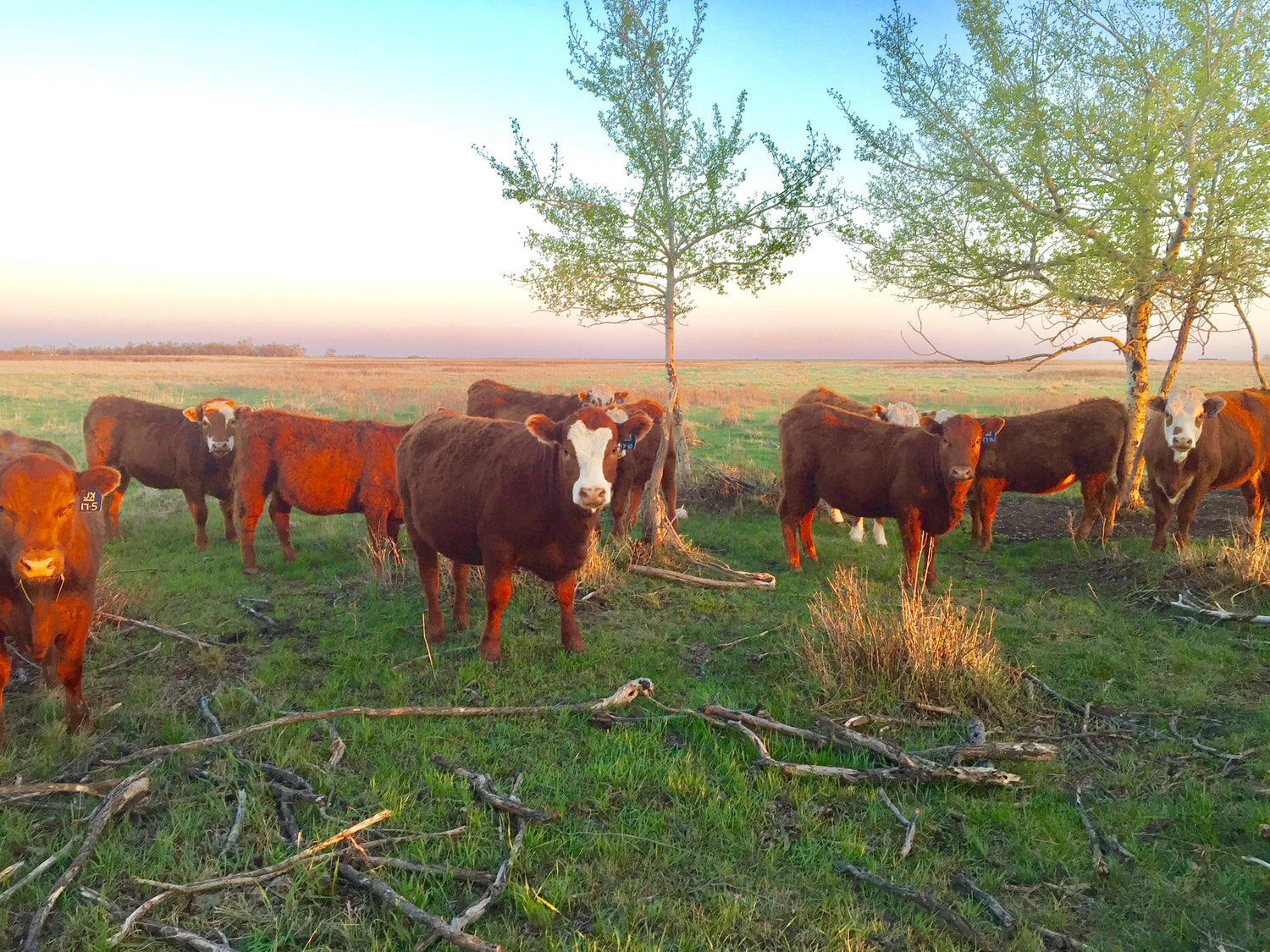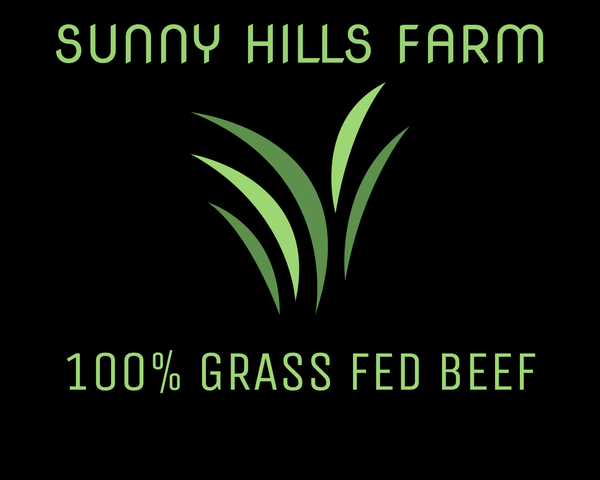
Why are grass finished cows healthier?
Cows have rumen stomachs, which means that by nature they should eat only a diet of grasses and legumes. Grains are not a natural diet of grazing animals.
Most beef go to feedlots when they are weaned at 6 months of age, where they are finished on extremely high amounts of grains. This speeds up the process of fattening, decreasing the amount of time on feed to fully fatten a beef.
However, a diet too high in starch and sugars in a ruminant animal will encourage the growth of microbes that produce lactic acid. This issue will eventually decrease the pH of the rumen and cause acidosis.
Acidosis often results in illnesses and organ abscesses. Cattle may become unwell, stop eating, have an elevated heart rate or digestive problems.
This reduced nutrition and inflammatory problems are then passed on to you when you eat it. After all, you are what you eat, digest and absorb!

Health benefits of grass fed beef vs grain fed beef
Grass finished beef contains more nutrients and more protein per gram of beef. It is leaner in fat content, and therefore has less calories per serving.
Grass finished beef is higher in Omega 3 fatty acids and has a better, healthier ratio of Omega 3 to Omega 6 fatty acids. This helps to decrease inflammation, promote heart health and brain health.
Grass finished beef is also much better for the environment and ecosystem, as the cows utilize and repair the grasslands that they graze.

Grass finished beef is high in antioxidants
Grass finished beef contains more vitamin A, vitamin E, selenium, zinc, magnesium, B6, Folate, B12, Niacin and glutathione than grain fed beef. These necessary vitamins and antioxidants protect the body from free radicals and cell damage.
